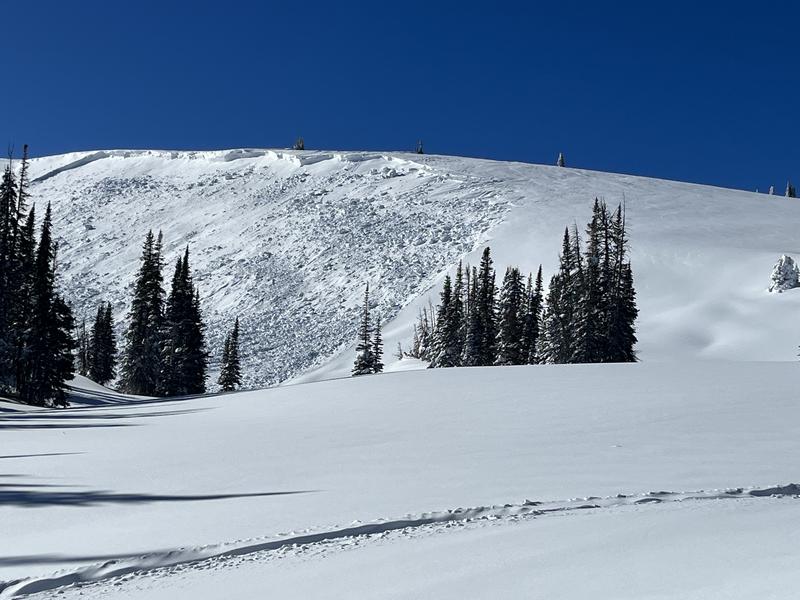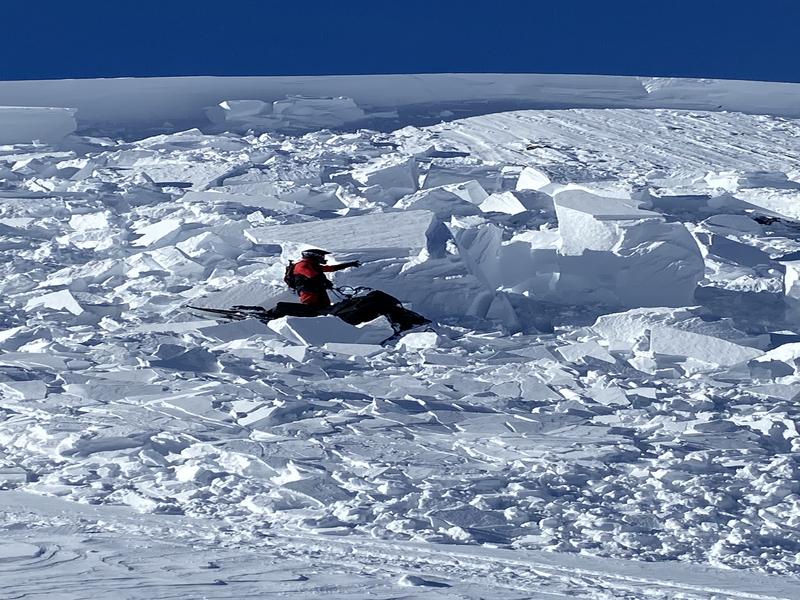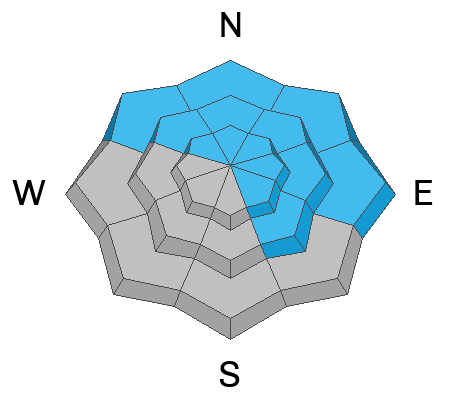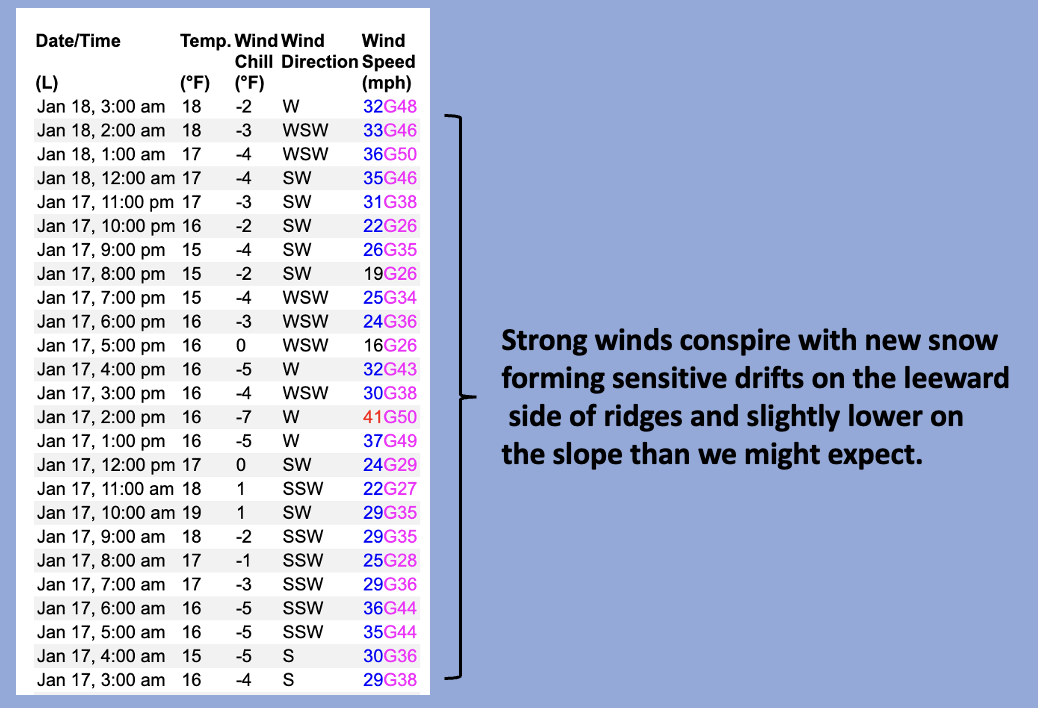Forecast for the Uintas Area Mountains

Issued by Craig Gordon on
Thursday morning, January 18, 2024
Thursday morning, January 18, 2024
The snow feels bomber under our skis, board, or sled... however, it's a deceptively dangerous setup that's giving us a false sense of stability and that can lure us into avalanche terrain. Once triggered, today's avalanches can fail on a persistent weak layer of snow now buried deep in our snowpack, resulting in a catastrophic slide.
HIGH avalanche danger is found on steep, upper elevation slopes and it's particularly sketchy on leeward slopes in the windzone at and above treeline. Human triggered avalanches breaking to deeply buried weak layers are LIKELY in terrain facing the north half of the compass, and especially on slopes with an easterly component to its aspect. Note to self... if I trigger an avalanche it could result in a large and potentially unsurvivable slide.
CONSIDERABLE avalanche danger is found near and above treeline on the south aspects and below treeline on shady slopes where human triggered avalanches are PROBABLE. In either case, a midpack weak layer remains suspect and is guilty until proven otherwise.
Lower elevation terrain facing the south half of the compass delivers MODERATE avalanche danger and human triggered avalanches are POSSIBLE on steep, wind drifted slopes.
Here's your exit strategy-
We need to continue steering clear of terrain with overhead hazard and that means... avoid being on, under, or near all avalanche terrain where we could potentially pull the rug out from underneath and crash the roof down on top ourselves.
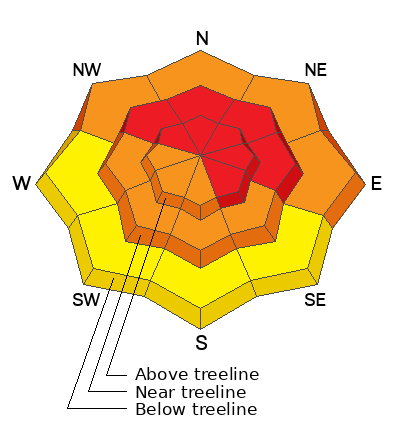
Low
Moderate
Considerable
High
Extreme
Learn how to read the forecast here


